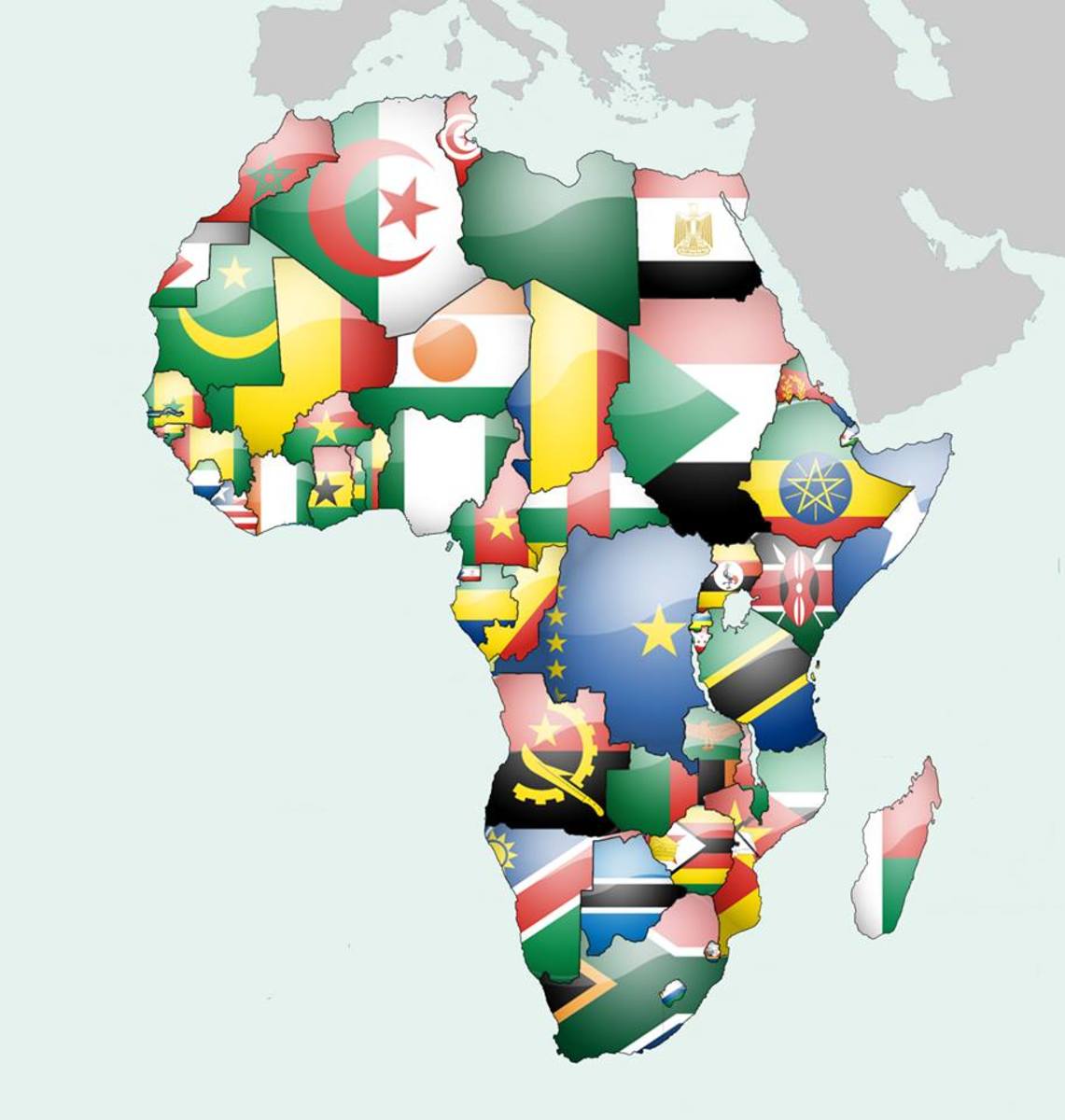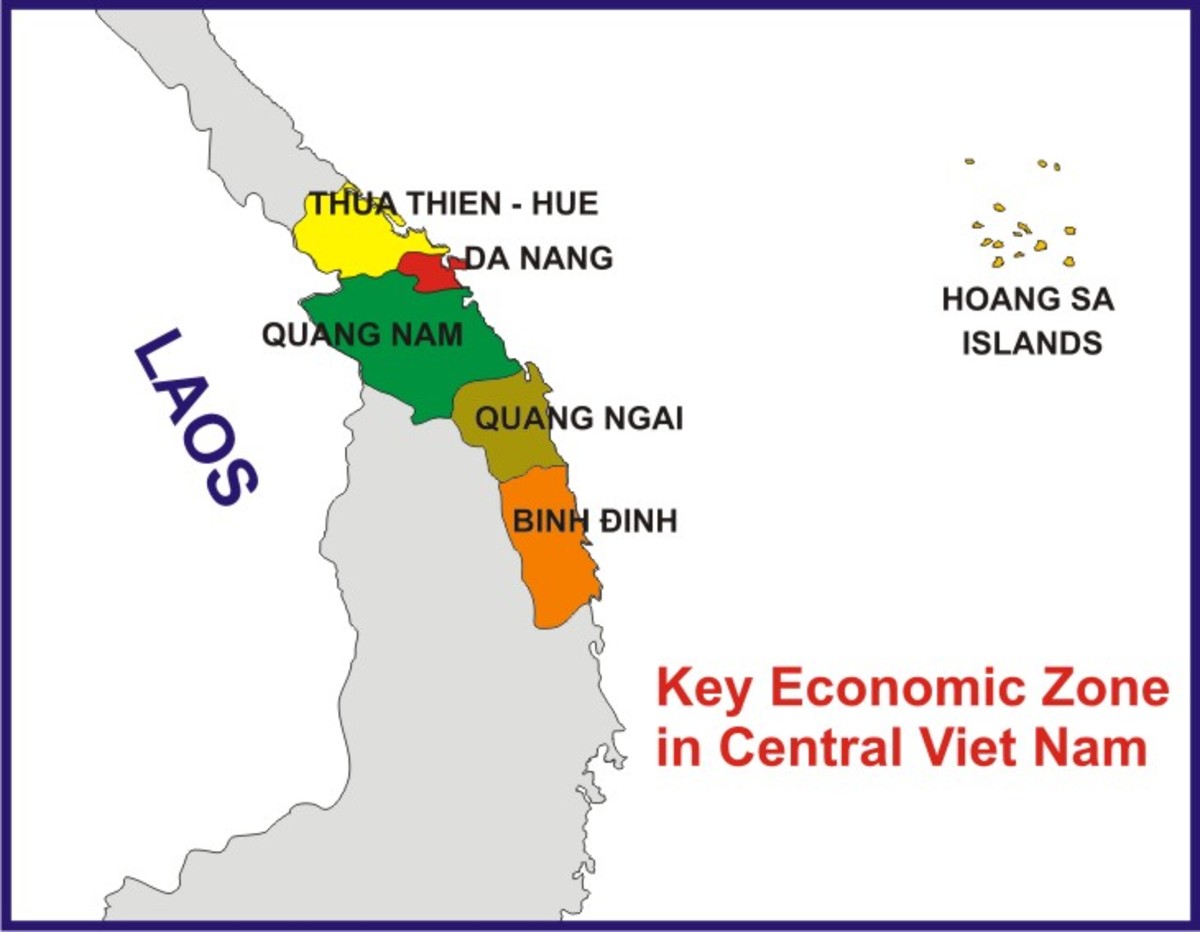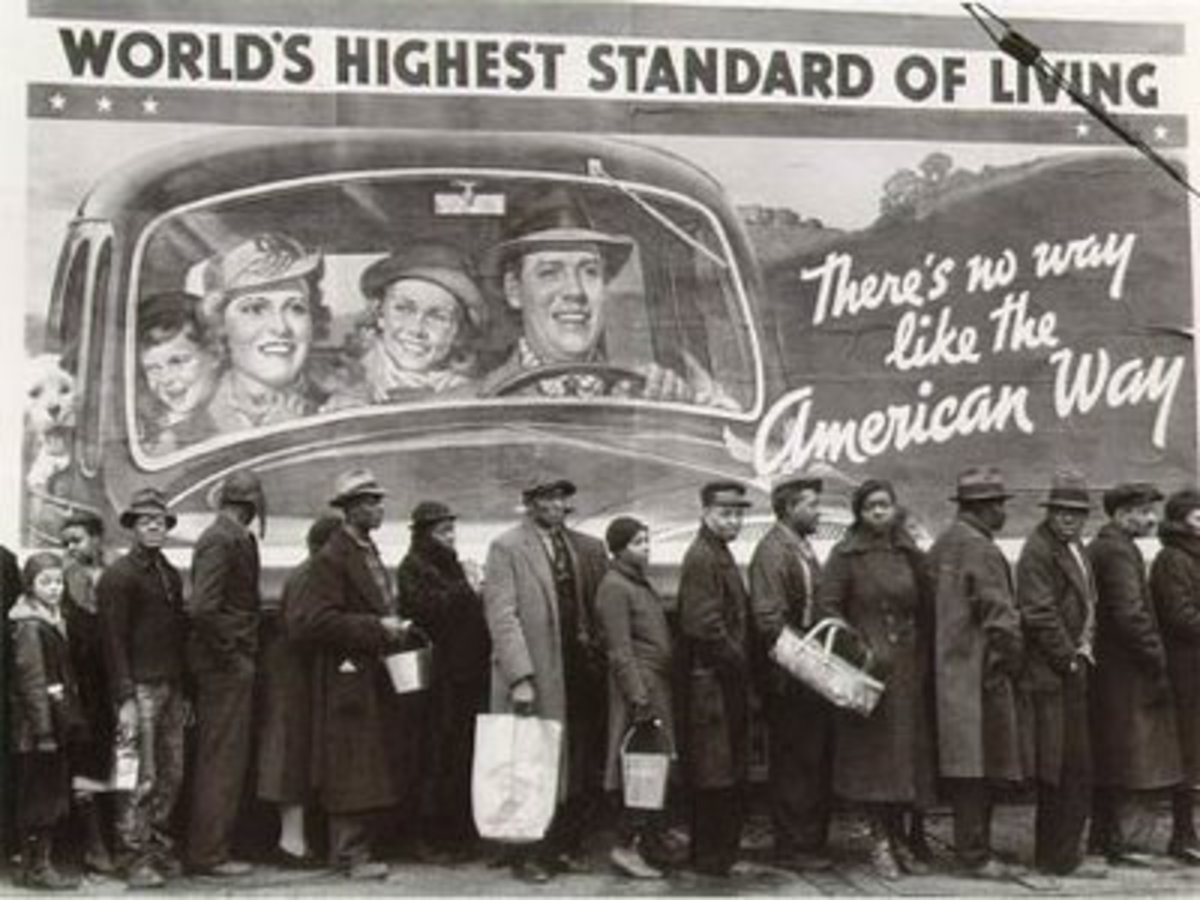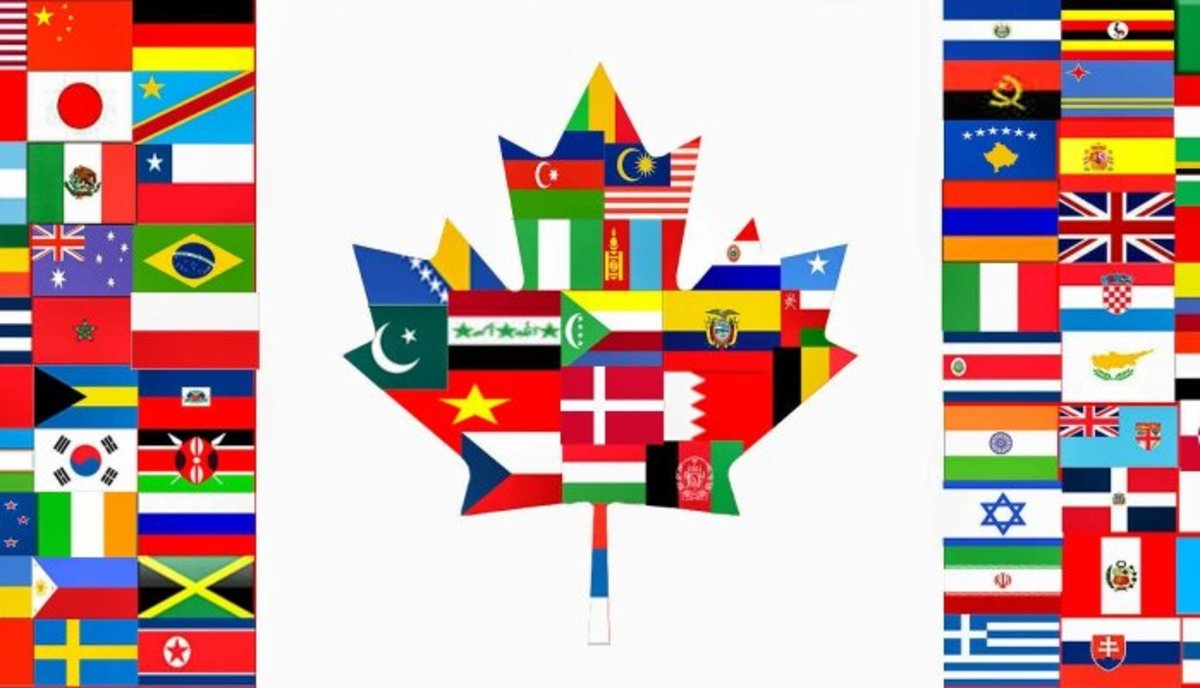THINKING ALOUD (BusinessLaw) INTERNATIONAL TRADE: Political Risks
Terrorism is the common enemy of humanity. China resolutely opposes terrorism in any form.
— President Xi Jinping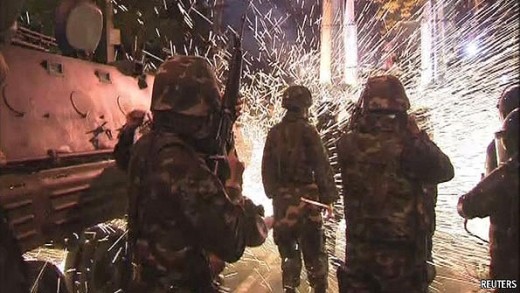
Democratic Republic of CONGO
– political & financial risks -
Writer: Chén Róng
You are an entrepreneurial head of a private company, but would you risk your family wealth in resource-rich Democratic Republic of Congo? Would you stick your neck out to raise US$65 million to own a licence and concessionary rights to harvest 300,000 hectares of forest area of highly subjective value in timber resource? Especially so, if the seller bought them for a paltry sum -- a great disparity with the asking price and he now says the forestry asset is worth more than US$5 billion !
We remember how this huge country suffered so much when it was torn up by two civil wars. Untold millions were left dead. And, as recently as 2011, the Congolese government ordered the world's largest U.N. peacekeeping to leave the country. Countries with weak governance and plentiful in natural resources are prone to armed violence. It is true that Congo is now at peace after a long civil war but there is still a sporadic outburst of violence within the country. Political risk covers a variety of eventualities -- risk of war, expropriation, licence revocation and currency risks. There are yet other factors that are traditionally not considered political risks - labour unions and artisan timber loggers, opaque transactions and rules -- which are able to affect a project's ability to operate. Artisan loggers who were given permission to log in certain areas under a Laissez-faire system may lay claims on forestry assets in which you have paid good money for licensing and concessionary rights.
Moreover, timber concession contracts are also not published and the government does not really know what companies in the forestry sector are doing. Yet, it not uncommon that concession owners were controversially stripped of all rights by the bureaucracy and a new owner buys over the same concession from the government for a song. All these events may take place at short notice. Some investors may suddenly lose millions of dollars on a wrong bet. There are also others who made windfall gains.
You probably would not take on such political risks as a direct investor.
Serving a public listed company as its chief executive officer is different from managing a family business when it comes to strategic planning. A family CEO has to adopt a much longer-term outlook when evaluating business deals; and he needs to think as an entrepreneur about such things as value creation for the long haul. It also means taking a more conservative approach when faced with threats from political instability, corruption, war and bureaucratic delays. Yes, he wants to take the business global but at the same time, he has to ascertain that the family invests in an asset that is safe; so he takes great pains to evaluate investment risks and quality of assets. What happens if the deal turns sour?
Nevertheless, there is one thing you might do and that is: take a minority interests and ride on the coat tail of big corporations. By putting equity stakes in large resource-players with exposure to the forestry sector, particular in Congo, you get align to the risks and challenges investing in politically less stable environment. But the writer is not suggesting that you go about blindly investing in a company whose business is no longer viable as a going concern. These companies may be now in their cross hairs to provide the balance between sticking with a risky African forestry gamble and folding up their cards. By putting money into such a financially strapped company, one takes on a bet on their unsound gamble on uncertainty. It is investment suicide.
The suggested approach is to own a small part of a much safer bet; one in which a reputable state-own company has a majority share in its equity. It is not a bad idea to invest in the shares of public listed like Olam International, especially if such equity investment ties in with your family business. Yes, your investment carries the entire Olam story but it does provide significant exposure to a calculated gamble in the forestry sector (albeit politically risky) that can bring in high returns. Olam’s business clout and scale of operation can arrange project finance transactions to contractually allocate political risks to export credit agencies, international financial institutions and political risk insurers. Political risk hence becomes a commodity that can be bought and sold by multinational commodities trading companies with global operations. Besides, Olam is owned by Singapore's Temasek and its concert parties. Together they now hold nearly 65% in the company.
At its heart, business is a gamble. The farmer who plants a crop to sell it next year is betting that he will find enough customers, at the right price, for what he produces. Hats off to this farmer and all those business people who have the mettle, the wherewithal, always taking on calculated gambles in their various ventures.
READ OTHER STORIES AT: chenrong.hubpages.com
Chén Róng’s Little English-Chinese Dictionary
-
cut ice = huì yǐng xiǎng
- until the coast is clear = wú kě jiàn de wēi xié
- flash in the pan = hěn duǎn de shí jiān
- on the cards = huì fā shēng
- par for the course = yī xiàng rú cǐ
- riding on the coattails = tí xié
- A snipe and a clam locked in combat = Yù bàng xiāng zhēng
Disclaimer
The writer makes no warranty of any kind with respect to the subject matter included herein or the completeness or accuracy of this article which is merely an expression of his own opinion. The writer is not responsible for any actions (or lack thereof) taken as a result of relying on or in any way using information contained in this article and in no event shall be liable for any damages resulting from reliance on or use of this information. Without limiting the above the writer shall have no responsibility for any act or omission on his part. Readers should take specific advice from qualified professionals when dealing with specific situations.
Free Trade Fracas: TPP
Free Trade Fracas: The Trans Pacific Partnership. That's the headline on one issue of nwLaborPress.
Donald Trump has been vocal against TPP, calling it an attack on American business. When she was President Obama’s secretary of state, Hillary Clinton called TPP the “gold standard” of international trade agreements.
Yes, it is a fracas - a noisy argument. It is an argument with diverging or opposite views expressed by Donald Trump, Hilliary Clinton and other politicians of similar stature.
Many arguments restrict themselves to small groups, but not the TPP. It has both political and economic consequences reverberating round the world involving 12 countries and 800 million people. The fracas affects the well-being of both the elite and man on the street especially within countries of Southeast Asia.
Now that the TPP is dead with Donald Trump taking USA out of TPP, International trade will slow to a trickle putting many people out of jobs. The TPP extends itself to foreign policy as the region needs big political powers to keep it stable. Just one example: North Korea is unpredictable and is developing its nuclear capabilities and missiles. Such strategic issues will require good cooperation between the two major powers of China and USA. This political cohension is fast breaking down with the demise of TPP.
Now, is it a free trade fracas or global trade war with strong political implications?
INTERNATIONAL TRADE
Political Risks
Writer: Chén Róng
China is far away from the Middle East both in geography and politics; so the business community can rest assured that terrorists have limited resource to target China, not even Beijing. It is safe to continue your trades with this big country. But the Middle East is a different story. Terrorism is rampant. Business people who have to be there should strengthen their awareness of self-protection and avoiding areas that are prone to upheavals and political risks.
We will talk about terrorism in another story.
Why is political risk a concern to the international trading community – big and small? After all, the risks involved are those of civil wars, violent demonstrations and terrorism. These are generally insurable risks provided by national export credit agencies and private service providers for companies in the import and export of goods and services, and for longer-term investments.
If the above argument does cut ice with the business community, then political risks are matters for the insurance companies to worry about; they employ a team of actuaries who calculate insurance premiums versus risk assessment. An indifference to political risks is like turning a blind eye to danger! It is unwise to be lulled into a false-sense of security just because risks are under-written by Political Risk insurers. In truth, the standard insurance may not cover political risks all and sundry, just like an All-Risk Policy does not cover all risks of damage and loss. The multinational companies employ political risk consulting firms to guide them. The small business owners generally use gut-feelings and the rule-of-thumb method in assessing political risks; at times self-insuring such risks just to save on insurance premium.
- Why the indifference to Political Risks?
Indifference is almost always due to a lack of awareness of the less proximate risks, especially the sub-sovereign and exotic risks that do not made the headlines when reported, if at all.
- Sovereign Risks
When someone talks about political risk, the first things that come to the minds of the small business owners are the current political violence in Egypt and the Syrian civil war. Demonstrations and protests in the Arab world, which can be unruly and violent at times, are termed the Arab Spring collectively. For certain, you will never think of shifting some of your production facilities and investing in a country torn by civil strife. Such political risk is real and obvious. You avoid a place like Egypt because there is risk to your life other than political risk. Business has to wait until the coast is clear.
- Peripheral Sovereign Risks
People, busy with their daily activities, are not aware of peripheral risks; high political risks to the entire Middle East region when Egypt goes on the edge with unabated uprising. Political and economic instability becomes a foregone conclusion. Sectarian clashes will spill over borders and extremists taking their causes to conflict zones as far as North Africa. Would you now want to do business in the Middle East and the African continent? Or, if you are in Asia, avoid commercial activities in the part of Myanmar which shares a border with Bangladesh and where extreme militancy remains a concern?
Keeping close tabs on political developments in specific regions where you trade is the key to making sound judgement. You will know when not to extrapolate risks, otherwise there may be few really safe places for commerce; militants have crossed borders to revive regional links, as what is now happening in Malaysia and Indonesia. Small companies can be more discerning with taking risks. The State of Penang and Johor’s Iskandar special economic zone in Malaysia are high on investors’ list. Indonesia has been rated among the top ten emerging countries. Singapore is a burgeoning metropolis. With a keen awareness of political risks, business owners take on calculated risks – venturing to select peripheral states or provinces preferably through government-led initiatives.
- Sub-sovereign & Exotic Risks
Political risk is more than just strikes, protest and civil unrest. Their manifestation is an end-game in itself just like a patient suffering from a deadly disease at its life threatening stage of development. Surviving such a disease can be achieved through its early discovery.
There may be widespread concern about execution risk; projects can be stopped mid-way as the government reneges on contracts because of a lack of funds as happened in the financial crisis of 2008. The current Euro-zone crisis may again produce sub- sovereign risks.
The ability to identify early signs of key sovereign and sub-sovereign risks in an emerging economy is paramount when planning to move part or all of your production facility to a neighbouring country. You are unhappy with your own government. While the country is politically stable, its political machinery maintains a tight labour policy that thwarts your business expansion plan. What you may not realised is that a cash-strapped government or a state of a less developed country can pose other problems for you; it may prevent you from generating your own power, for instance. You may not be allowed to install your own generator sets or install solar panels to power your machines. You may be forced to buy electricity regulated by the state government; but their prices keep increasing without any good reason. A further discovery shocked you to your bones. A number of ex-ministers are paid inflated salaries in the power companies that supply the electricity. All these discoveries came too late because you failed to see the political risk prognosis of a near bankrupt state or provincial government when the country itself presents no political risks. Recently Detroit filed for bankruptcy when some other states in USA are thriving with business activities. It is a big contrast between states.
Perhaps, you shifted part of your production facilities to a neighbouring country because over there land and labour, the factors of production, are both in plentiful supply and readily available at low costs. Is your decision one of quick-fix without giving due consideration to other business elements? What happens if your newly adopted country or its state government does little to improve on its education system; to better train its people for skilled jobs. Or for some reason, there is a brain drain because of perceived lacking in good job opportunities in the medium to long-term; this can be a political risk brewing. The education standards of its people are lagging behind, but the government is unwilling to train them for jobs – filling vacancies with migrant workers instead – drumming up a high GDP figure is a gimmick to gain political capital. It is a flash in the pan that benefits only the inner circles of governments. It is not sign of a country positioning itself as place for trade and direct foreign investments.
Is the whole necessarily different from the sum of its parts?
The State:
Is the whole a sum of its parts? We should leave the answer to students of Aristotle's Metaphysics. It may be true that the economic and social direction a particular country takes is made possible by the long-rein rule of a single party. If the opposition takes power at the national election, the scale of change for the country can be enormous. That may be the case even if the ruling party still dominates in some states.
But in the arena of political risks, there are close-knitted relationships within a state itself that are fundamentally different from the mere collection of high sensations for a ruling party in the country. The Malaysian state of Penang is an investment haven because the island-state has no tsunami and earthquake to cause havoc and disruption to businesses. Penang’s stunning transformation under the Malaysian opposition was such that many international investors fear a political winds shift if the ruling party were to regain control of the state. Perception can be worse than reality, even if such rhetoric may be unfair propaganda. The opposition and ruling party do not seem to have divergent economic views and policies on managing the island-state. Nothing suggests that the ruling party is incapable of change for the betterment of the state as in the country. But change, that is certain, that comes with any political winds shift within the state itself. Any loss-making state-owned entities that sap the government finances will need be revamped or liquidated. So any small business that depends on such big corporations for their existence should take heed that their own demise may be near.
The State Enterprises:
In a developed democracy, state enterprises can collectively be a huge political conundrum. There is no lack of short-sighted economic nationalists who will go all out to help their own country by inappropriately acquiring foreign assets operating within their boundaries. Structuring means expropriation of under-performing concessions granted to private enterprises such as big mineral mining companies. If you are a supplier or sub-contractor to these multinationals with mining rights – watch where the sub-sovereign risks wind is blowing. Production-sharing contracts of these concession majors may expire and not renewed; or concessions on rich fields shortened if government agencies or local governments regard performance as below acceptable standards using their own yardstick for measuring growth or its potential. Reneging on existing contracts may be on the cards. The more so tempted a government may be to cancel a license or expropriate a mine if it comes to know that assets held by foreigners are insured against political risks. This point is paradoxical.
However, with a new-breed of nationalists striving to uphold the rule of law of a country, state enterprises may be shedding their old mercenary image of trying to gain control of a national resource at first opportunity. They have a better appreciation of foreign expertise and their involvement in current and future operations in various industries. Small business owners should not stay stereotype, like a frog in a well trying to gauge happenings in the outside world. Business people may do themselves a disservice using their past experiences as ‘par for the course’ instead of looking at situations with open minds for changes in political risk profile. For mining developments and related businesses – whether in oil & gas or other minerals - Indonesia stands as a good alternative to resource-rich Australia.
- Government actions affecting political risks
1. Proactive approach by a Nation
When a nation takes the lead for commerce to follow, exporters of goods and services will be made a lot easier. China’s unique package of comprehensive assistance to African countries, starting from low-interest loans and technical assistance to the supply of Chinese workers in peripheral regions such as Sudan, Rwanda and Liberia, is a great way to helping Chinese businesses in making commercial in-routes into Africa – although potential difficulties remain high. Certainly, a national agenda is high on the list. China has to find new sources for its skyrocketing energy consumption. Japan, although lagging behind China, is also embarking on an aggressive investment policy based on inclusiveness and fairness of approach and not just quantity of aid money pouring into the African continent.
Small Chinese and Japanese companies will gain much by riding on the coattails of their governments and the entourage of multinational companies that march in tune to an African economic growth story. Sovereign and sub-sovereign risks are reduced, if not completely eliminated.
2. Changing the Rules of the Game
The U.S.A:
The biggest concerns for business people are when established rules governing commerce cha ge with political winds. Do not, for a moment, think that this can only happen in emerging markets. Contracts and their terms, which business people thought, were valid can now be changed in developed markets in Europe and USA where the rule of law is generally upheld, but until recently. The USA government’s decision that favoured the unions over their employer, bankrupt automaker Chrysler, ignored the rights of senior lenders entitled to get paid back before unsecured creditors such as workers.
Perhaps we should not be too critical of the U.S. government because the re-structuring of the bankrupt automaker is of national importance as it involves the welfare of thousands of workers and their families. It was done at the expense of just a few lenders, so the argument goes. Nevertheless, such a major shift in the rules of the game can bring about undesirable consequences for business people acquainted with the steadfastness of the U.S. corporate laws.
The European Union
European politics have been dramatically affected by their economic crisis.
The riots in Sweden in May this year are manifestations of pervading socioeconomic and the high-strung frustration that has boiled over among European immigrants and youth. New political divisions are emerging because voters are clamouring to support candidates who can demonstrate political sobriety that is a break from the unpleasant past. As the crisis endures and the solutions pursued continue to fail to produce lasting and meaningful change, there is a rising risk of street demonstrations, and political violence. The crisis is multifaceted and long drawn. Europe must address its long-term political, economic and social problems in a realistic and common-sense fashion. Weapons they use are likely principal challenges to free markets. Business people need to assess the vulnerability of their global supply chains. America and Europe need to work together. Instead of co-operation between them, they engage in a trade war. For instance, following the American lead, European steel makers have launched a barrage of “anti-dumping” cases against imports they deem too cheap. Snipe and a clam are locked in combat? The fisherman gains a two-in-one catch. But on this occasion, none gains from the trade war.
The present downturn and the rise of protectionism in the Euro zone comes therefore at a particular inopportune time, because it is the same small companies that are most poorly equipped to deal with the shrinkage of trade. They are vulnerable because of concentration on a few products; small businesses are price and cost sensitive, and because their companies do not have the shock-absorbers that wealthy multinational firms do.
- Writer’s perspective on approach to political risks
If businesses cannot afford the high insurance premium, do not risk doing business in countries with high political risks.
Broadly speaking, political risks insurance basically covers political violence such as war and insurrection. Coverage may also include sub-sovereign risks as nationalisation; expropriation of assets; and non-convertibility of particular national currency. But as companies push their business into ever more remote frontiers or locales, so they need protection against more exotic risks, in addition to those sub-sovereign risks discussed. Fresh products are now being introduced by private insurance companies to satisfy the growing needs of international businesses. The current situation may be a result of abundant liquidity but once central banks withdraw the money flow, one cannot be too sure of getting coverage for some exotic risks. This is only the writer’s own opinion. Talk it over with insurance people, if small business owners are adamant on globetrotting to expand their business. When a crisis hits, it is often too late trying to get your assets insured. "You cannot insure a house that is already on fire," as an industry saying goes.
Nevertheless, small companies still need to be careful where they are going as their needs may be unmet by changes in the insurance marketplace. They should never try to self-insure against such exotic risks. Large companies grappling with these issues have the benefits that scale brings to risk management. Size does matter.
Shakespeare once said: “Ignorance is the curse of God, knowledge the wing wherewith we fly to heaven”. Whether is life or in business, the early recognition of political risks will provide us with economic wings to fly to wherever heavenly place is safe for our family and commercial livelihood.
READ OTHER STORIES AT:
http://chenrong.hubpages.com
---- E N D -----
Hubpages do not support words written in the Chinese Language. Readers can get a free online English-Chinese translation from GOOGLE TRANSLATE OR TRANSLATED.net
I have also included ChénRóng’s Little English-Chinese Dictionary for a more precise translation of select English phrases from the article.
……………….

